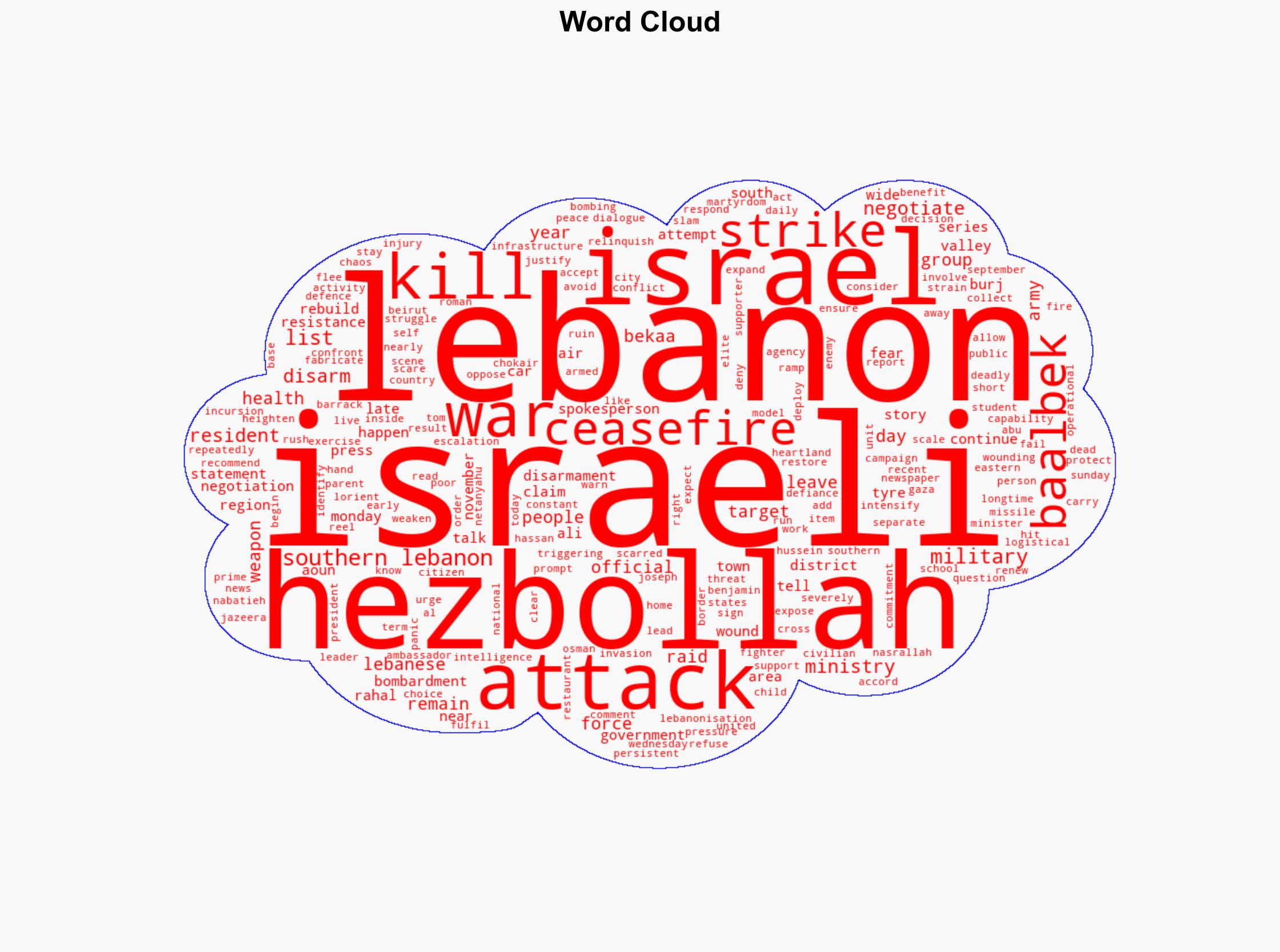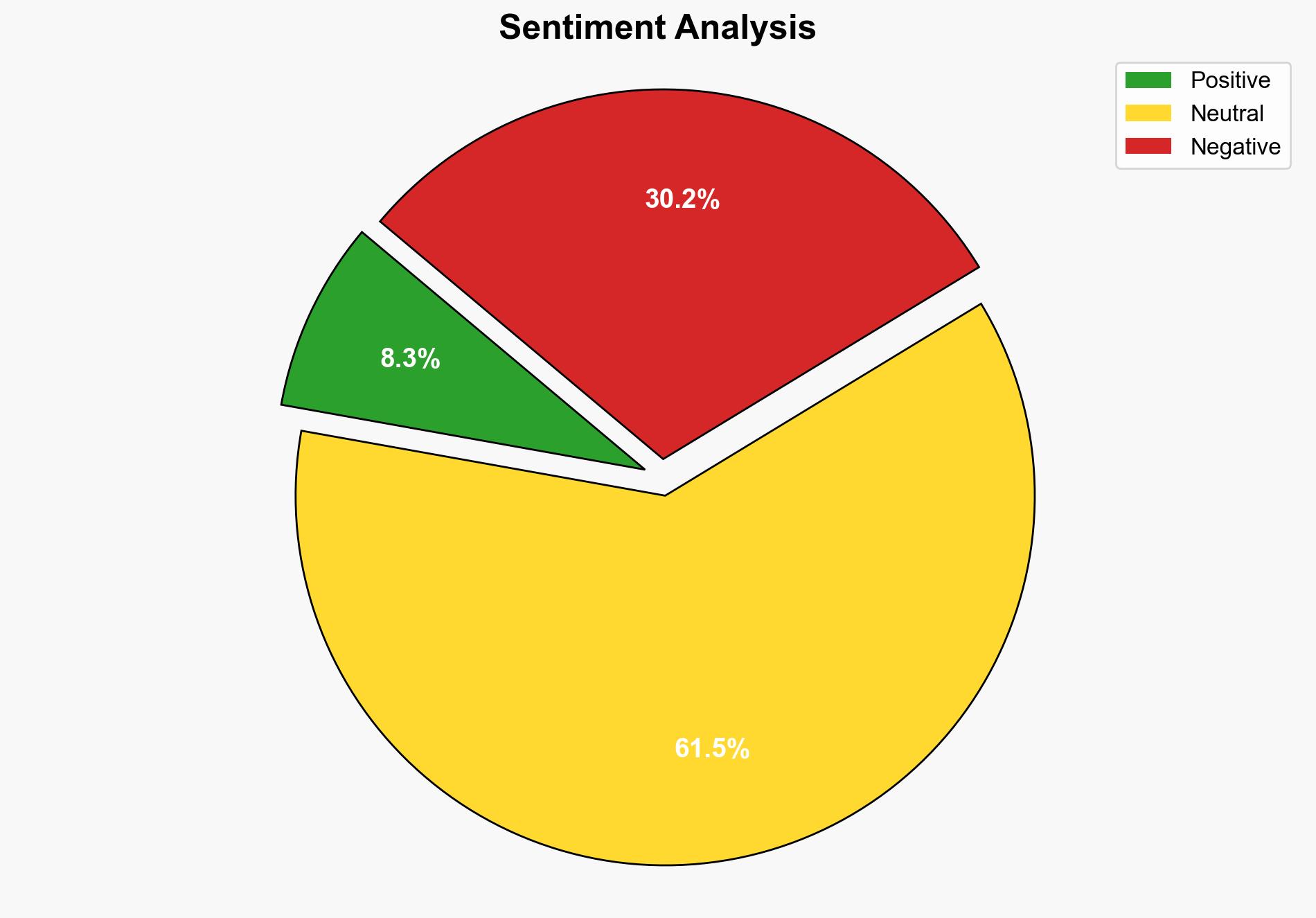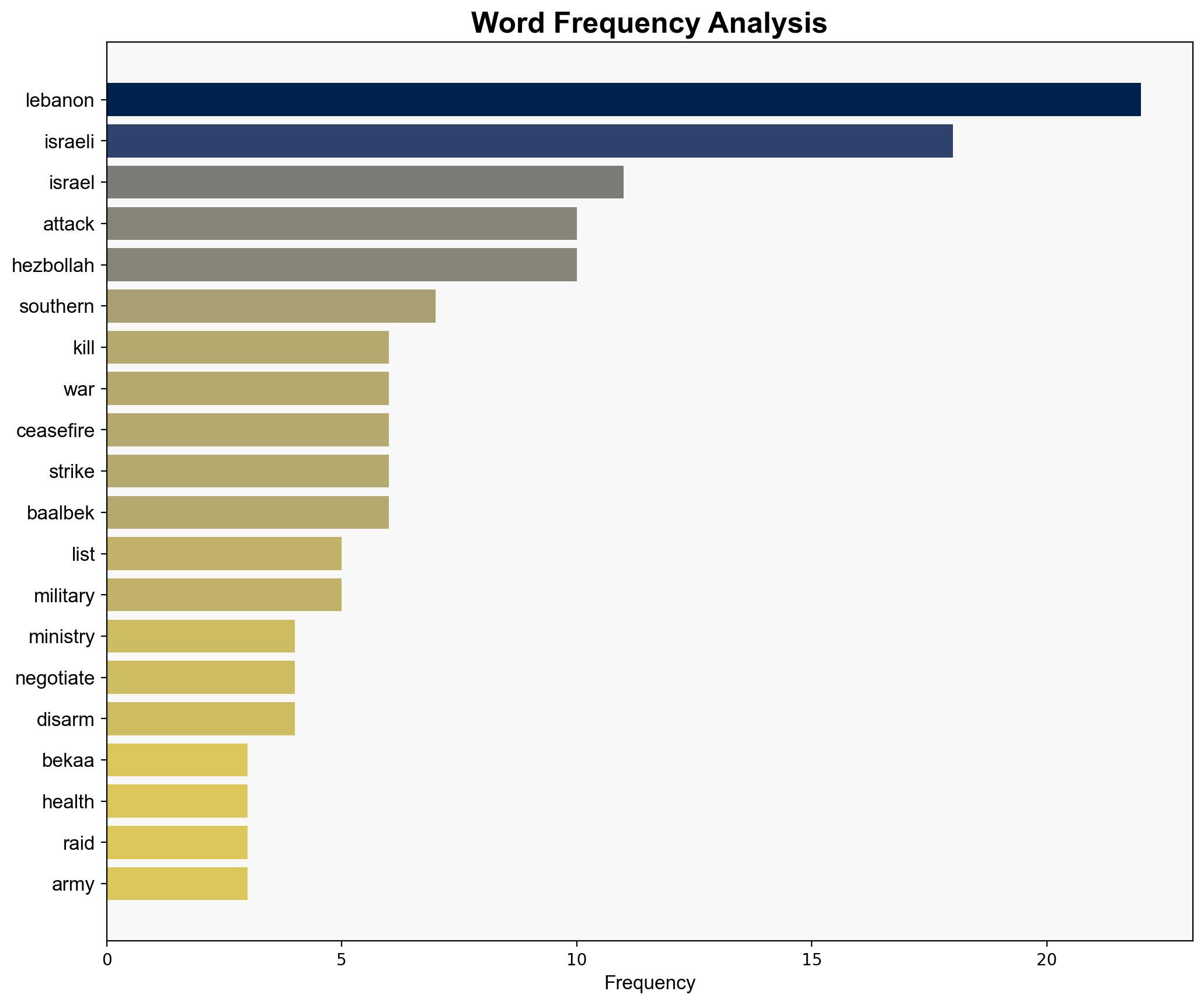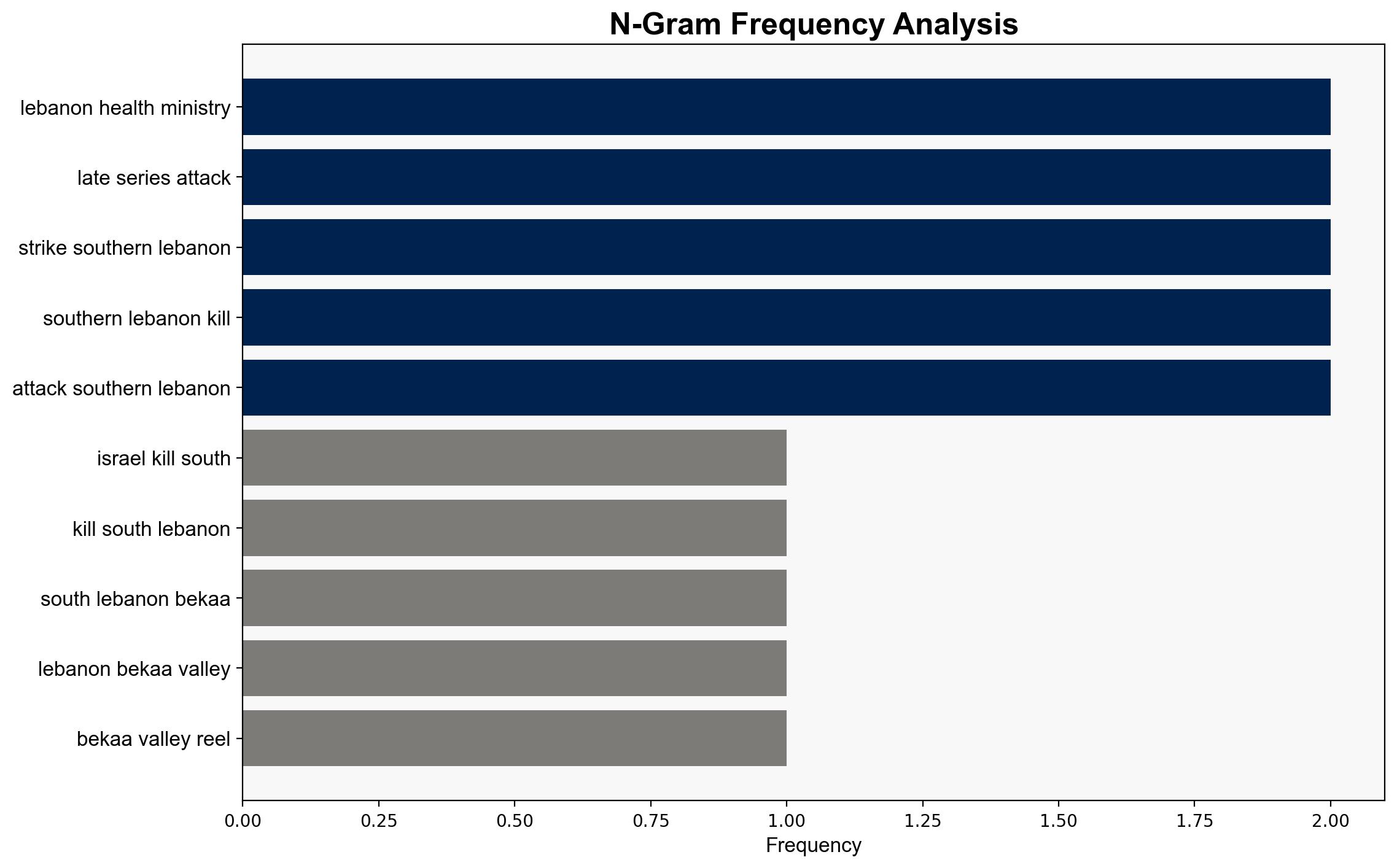Israel kills one in south Lebanon as Bekaa Valley still reels from war – Al Jazeera English
Published on: 2025-11-05
Intelligence Report: Israel kills one in south Lebanon as Bekaa Valley still reels from war – Al Jazeera English
1. BLUF (Bottom Line Up Front)
The situation in southern Lebanon remains volatile, with recent Israeli airstrikes against alleged Hezbollah targets exacerbating tensions. The most supported hypothesis suggests that Israel’s actions aim to degrade Hezbollah’s military capabilities, despite the risk of escalating conflict. Confidence level: Moderate. Recommended action: Diplomatic engagement to de-escalate tensions and address underlying security concerns.
2. Competing Hypotheses
1. **Hypothesis A**: Israel’s airstrikes are a strategic effort to weaken Hezbollah’s military infrastructure and prevent its resurgence, particularly in light of recent intelligence suggesting Hezbollah’s attempts to rebuild.
2. **Hypothesis B**: The airstrikes are primarily a political maneuver by Israel to pressure the Lebanese government into disarming Hezbollah, leveraging military action to influence diplomatic outcomes.
Using ACH 2.0, Hypothesis A is better supported by the pattern of targeted strikes and Israel’s historical focus on military objectives. Hypothesis B is plausible but less supported due to the lack of direct diplomatic engagement following the strikes.
3. Key Assumptions and Red Flags
– **Assumptions**: It is assumed that Israel’s intelligence on Hezbollah’s activities is accurate and that the strikes are based on credible threats. Additionally, it is assumed that Hezbollah’s denial of military buildup is genuine.
– **Red Flags**: The absence of independent verification of Hezbollah’s activities and the potential bias in reporting from both Israeli and Hezbollah sources. The lack of a clear response from the Lebanese government is also concerning.
4. Implications and Strategic Risks
The continuation of airstrikes could lead to a broader conflict, destabilizing the region further. There is a risk of civilian casualties increasing anti-Israel sentiment, potentially fueling recruitment for Hezbollah. Economically, prolonged conflict could hinder Lebanon’s recovery efforts. Geopolitically, increased tensions may draw in external actors, complicating resolution efforts.
5. Recommendations and Outlook
- Engage in multilateral diplomatic efforts to mediate between Israel and Lebanon, focusing on de-escalation and addressing security concerns.
- Encourage transparency and third-party verification of military activities to reduce misinformation.
- Scenario Projections:
- Best: Successful diplomatic intervention leads to a renewed ceasefire and dialogue.
- Worst: Escalation into a full-scale conflict involving regional powers.
- Most Likely: Continued low-intensity conflict with periodic escalations.
6. Key Individuals and Entities
– Benjamin Netanyahu
– Hassan Nasrallah
– Joseph Aoun
– Tom Barrack
7. Thematic Tags
national security threats, counter-terrorism, regional focus





